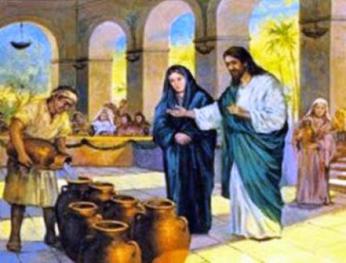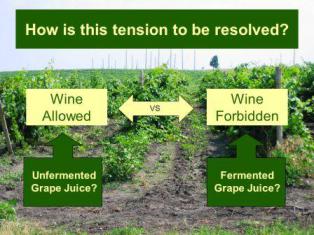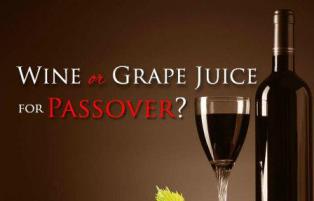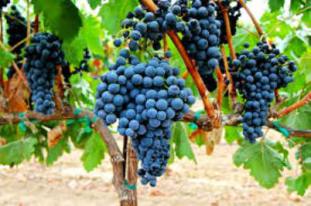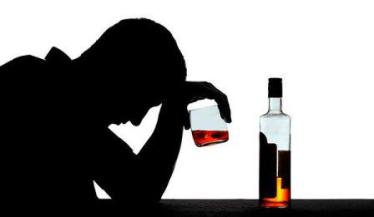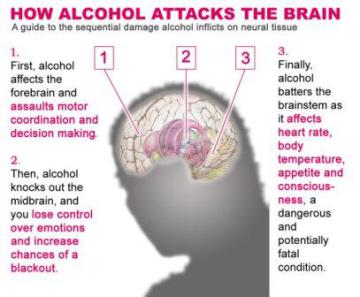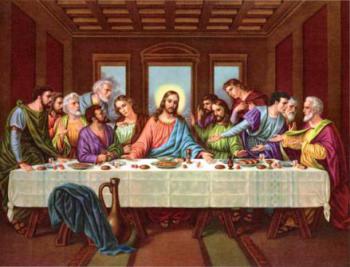Did Jesus drink Alcohol?
( page 7 of 8 )
Most christians still believe and teach that it is “ok” to drink alcoholic beverages, because Jesus drank wine and He is my example!
Luke 7 (v. 33) For John the Baptist came neither eating bread nor drinking wine, and you say “he has a demon.” (v. 34) the Son of Man has come eating and drinking, and you say “look a glutton and a winebibber”....
And not only did Jesus drink wine, he also made some for everybody else to drink!
John 2 (v. 6) Now there were set there six water-pots of stone.... containing twenty or thirty gallons apiece. (v. 7) Jesus said to them, “Fill the water-pots with water.” And they filled them up to the brim. (v. 8) And He said to them, “Draw some out now, and take it to the master of the feast.” (v. 9) When the master of the feast had tasted the water that was made wine,... [he] called the bridegroom. (v. 10) ....“Every man at the beginning sets out the good wine, and when the guests have well drunk, then that which is inferior; but you have kept the good wine until now.”
And immediately people say: “see, Jesus made 30 gallons of the good stuff” meaning that the “good” stuff must be 100 proof alcohol.
It was Christ who, in the Old Testament, gave the warning to Israel, "Wine is a mocker, strong drink is raging: and whosoever is deceived thereby is not wise." (Proverbs 20:1). He Himself provided no such beverage. Satan tempts men to indulgence that will becloud reason and benumb the spiritual perceptions, but Christ teaches us to bring the lower nature into subjection. He never places before men that which would be a temptation....[1]
Christ did not contradict His own teaching. The unfermented wine that He provided for the wedding guests was a wholesome and refreshing drink. This is the wine that was used by our Saviour and His disciples in the first Communion. It is the wine that should always be used on the Communion table as a symbol of the Saviour's blood. The sacramental service is designed to be soul-refreshing and life-giving. There is to be connected with it nothing that could minister to evil.[1]
In order to settle the confusion, we have to understand that the word “wine” in the bible, is used for both: fermented (strong drink) and un-fermented (grape juice).
Let us investigate this topic a little more deeply:
Most people assume today, that the word “wine” can refer only to fermented, intoxicating grape juice, or to the fermented juice of any fruit used as beverage. The basis for this assumption is the current usage and the definition given to the word [wine] by most modern dictionaries.[2]
The 7th edition of the Merriam Webster’s Collegiate Dictionary (1995) defines “wine” as: 1. fermented grape juice containing varying percentages of alcohol together with ethers….that give it….flavor. 2. The fermented juice of a plant product (as fruit) used as a beverage.[3]
Notice that there is no mention at all of un-fermented ( Non-Alcoholic ) grape juice as one of the possible meanings of “wine”! It is not surprising that people, who read a definition such as this, would naturally assume that wine
can “only” mean a fermented (Alcoholic) drink.
Let us compare this definition with a dictionary written only 40 years earlier. The (1955) Funk & Wagnalls New “Standard” Dictionary of the English Language defines “wine” as: 1. the juice of the grape whether fermented or not.[4]
Another dictionary, a little more recent, the New Webster Encyclopedic Dictionary of the English Language (1971) defines wine written as "must": 1. wine or juice pressed from the grapes but not fermented. This definition clearly equates “wine” with grape juice.[5]
The (1828) version of the Webster’s Dictionary defines “wine (must)” as: 1. new wine pressed from the grape, but not fermented.[6] Notice that the un-fermented grape juice here is explicitly called “new wine.”
Isa 65 (v. 8) As the new wine is found in the cluster,...for a blessing is in it.
This is un-fermented grape juice, ripe from the vine, and is called “new wine.”
The (NIV) bible states verse 8: “As when juice is still found in a cluster of grapes.” The NIV does not say “wine” but rather “juice” of the grapes.
A clear example of the use of the term “wine” to refer to unfermented grape juice is provided by William Whiston’s translation of Josephus’ “Antiquities of the Jews,” first published in 1737. Referring to Joseph’s interpretation of the cupbearer’s dream, Josephus writes: “He therefore said that in his sleep he saw three clusters of grapes hanging upon three branches of a vine, and ripe for gathering; and that he squeezed them into a cup which the king held in his hand and when he had strained the wine, he gave it to the king to drink....”[7]
In this translation Whiston uses “wine” as a proper rendering for fresh, unfermented grape juice (gleukos), obviously because in this time “wine” meant either fermented or unfermented grape juice....Does not this translation support the conclusion that unfermented grape juice was called “wine” in older English usage?[7]
Eph 5 (v. 18) And do not be drunk with wine, in which is dissipation; but be filled with the Spirit.
Listen to one man's comments about this topic, as a very new believer: "A couple of days later a Baptist guy came hiking by my cave and stopped to chat. Immediately our conversation turned to religion, and I told him all about my surrender to Jesus....he said sincerely, "but you haven't been baptized, have you?" ....I took two towels from my shelf and laid them on the ground beside the pool....he raised his right hand above my head and said....because of your faith in Jesus Christ....I now baptize you in the name of the Father, and of the Son, and of the Holy Ghost....He lowered me into the water, then raised me up...."[8]
My ecstasy was short-lived, though. Later that day I hiked to town to celebrate my baptism with a couple of beers. Something inside said, "No Doug, christians don't drink." "But didn't Jesus drink wine?" I reasoned. "Didn't He turn water into wine?" I had not been taught that in the Bible, the word "wine" often means "grape juice." Sometimes, when it was fermented, it was called "mixed wine" or "strong drink." Later I was to discover that in reality, the Bible taught that drinking is foolish and wicked.[8]
When the King James Version of the Bible was produced (1604-1611) its translators understood “wine” to refer to both fermented and un-fermented (non-alcoholic) wine.[9]
So, what does the Bible actually say about alcoholic drinks?
Prov 23 (v. 29) ....Who has wounds without cause? Who has redness of eyes? (v. 31) Do not look on the wine when it is red, when it sparkles in the cup,... (v. 32) At the last it bites like a serpent, and stings like a viper. (v. 33) Your eyes will see strange things, and your heart will utter perverse things. (v. 35) ....When shall I awake, that I may seek another drink?
This is the life of a drunkard. What will eventually happen, if you continue to live this type of life?
Prov 23 (v. 20) Do not mix with winebibbers, or with gluttonous eaters of meat; (v. 21) For the drunkard and the glutton will come to poverty....
All over the land are the houses of the publican, the places of the liquor vendors,--death-traps, where not only men but youth and children are taken captive by the enemy of souls. The law profess to restrict the work of the liquor-seller by providing that when a man reaches a certain state of inebriety, he is to be denied drink. But who is to judge as to when one has reached the stage where it is unsafe for him to drink more? This is left to the man who is making gain by the weakness of his wretched victim....[10]
The law permits the liquor-vendors to lead them down step by step, until the liquor habit is established, and the young men are drunkards....Do not the law-makers understand what they will become,--poor inebriates, ruined in body and soul? The drunkard is capable of better things. God has intrusted to him talents with which he was to glorify God; but his fellow-men have laid a snare for his soul, and built themselves up out of his ruin.[10]
What else does the Bible say about alcoholic drinks?
Prov 20 (v. 1) Wine is a mocker, intoxicating drink arouses brawling, and whoever is led astray by it is not wise.
Do drinkers of alcohol respect the things or works of the Lord?
Isa 5 (v. 11) Woe to those who rise early in the morning, that they may follow intoxicating drinks; who continue until night, till wine inflames them! (v. 12) ....And wine are in their feasts; but they do not regard the work of the Lord, nor consider the operation of His hands.
Can alcoholic drinkers represent the Lord, to other people?
Lev 10 (v. 9) Do not drink wine or intoxicating drink....when you go into the tabernacle of meeting.... (v. 10) that you may distinguish between holy and unholy, and between unclean and clean.
If you cannot distinguish between the unholy and holy things of God, then what good is it to drink alcoholic beverages?
Isa 28 (v. 7) ....The priest and the prophet have erred through intoxicating drink, they are swallowed up by wine,...they err in vision, they stumble in judgment. (v. 8) For all tables are full of vomit and filthiness, so that no place is clean.
I have often heard people say, "Oh! this is only sweet cider; it is perfectly harmless, and even healthful." Several quarts, perhaps gallons, are carried home. For a few days it is sweet; then fermentation begins. The sharp flavor makes it all the more acceptable to many palates, and the lover of sweet wine or cider is loth to admit that his favorite beverage ever becomes hard and sour.[11]
Persons may become just as really intoxicated on wine and cider as on stronger drinks, and the worst kind of inebriation is produced by these so-called milder drinks. The passions are more perverse; the transformation of character is greater, more determined and obstinate. A few quarts of cider or wine may awaken a taste for stronger drinks, and in many cases those who have become confirmed drunkards have thus laid the foundation of the drinking habit....[11]
The brain is benumbed and clouded; reason no longer holds the reins, but they are laid on the neck of lust. Licentiousness, adultery, and vices of almost every type, are committed as the result of indulging the appetite for wine and cider. A professor of religion who loves these stimulants, and accustoms himself to their use, never grows in grace. He becomes gross and sensual; the animal passions control the higher powers of the mind, and virtue is not cherished.[11]
Alcohol effects the part of the brain where moral decisions are made. Even small amounts of alcohol destroy brain cells, which can never be replaced.
I Pet 5 (v. 8) Be sober,...because your adversary the devil, walks about like a roaring lion, seeking whom he may devour.
What could happen to you, if you are intoxicated at the wrong time?
Luke 21 (v. 34) But take heed to yourselves, lest your hearts be weighed down with....drunkenness, and cares of this life, and that Day come on you unexpectedly. (v. 36) Watch therefore, and pray always....to escape all these things that will come to pass, and to stand before the Son of Man.
Let us take a look at the Lord’s Supper!
Matt 26 (v. 27) Then He took the cup, and gave thanks, and gave it to them, saying: “Drink from it, all of you.” (v. 28) For this is My blood of the new covenant, which is shed for many for the remission of sins. (v. 29) ....I will not drink of this fruit of the vine from now on until that day when I drink it new with you in My Fathers kingdom.
Which kind of wine was “meant” by Jesus to represent his blood?
Prov 20 (v. 1) Wine is a mocker, intoxicating drink arouses brawling, and whoever is led astray by it is not wise.
Is that the kind of “wine” that Jesus wants for us to represent his blood? How is fermented, intoxicating, wine beverage, going to accurately represent the “blood” that cleanses us from sin?
Wine Recommended in Bible Not Intoxicating.--The Bible nowhere teaches the use of intoxicating wine, either as a beverage or as a symbol of the blood of Christ. We appeal to the natural reason whether the blood of Christ is better represented by the pure juice of the grape in its natural state, or after it has been converted into a fermented and intoxicating wine. . . .We urge that the latter should never be placed upon the Lord's table. . . .We protest that Christ never made intoxicating wine; such an act would have been contrary to all the teachings and example of His life. . . . The wine which Christ manufactured from water by a miracle of His power, was the pure juice of the grape.[12]
References:
1. The Ministry of Healing, “Stimulants and Narcotics” p.333, par.2
2. Samuele Bacchiocchi, (2004). Wine in the Bible, p.55, Biblical Perspectives.
3. The Merriam Webster’s Collegiate Dictionary (1995), seventh edition.
4. The Funk & Wagnalls, New “Standard” Dictionary of the English Language (1955).
5. The New Webster Encyclopedic Dictionary of the English Language (1971).
6. The (1828) version of the Webster’s Dictionary.
7. Samuele Bacchiocchi, (2004). Wine in the Bible, p.57, Biblical Perspectives.
8. Doug Batchelor, (1991). The Richest Caveman, p.75, Mountain Ministry.
9. Samuele Bacchiocchi, (2004). Wine in the Bible, p.58, Biblical Perspectives.
10. E.G. White, The Liquor Traffic Working Counter to Christ, p.5-6, Pamphlet.
11. E.G. White, Testimony Studies on Diet and Foods, p.15, par.1
12. The Signs of the Times (29 Aug 1878). “Milder Intoxicants”
